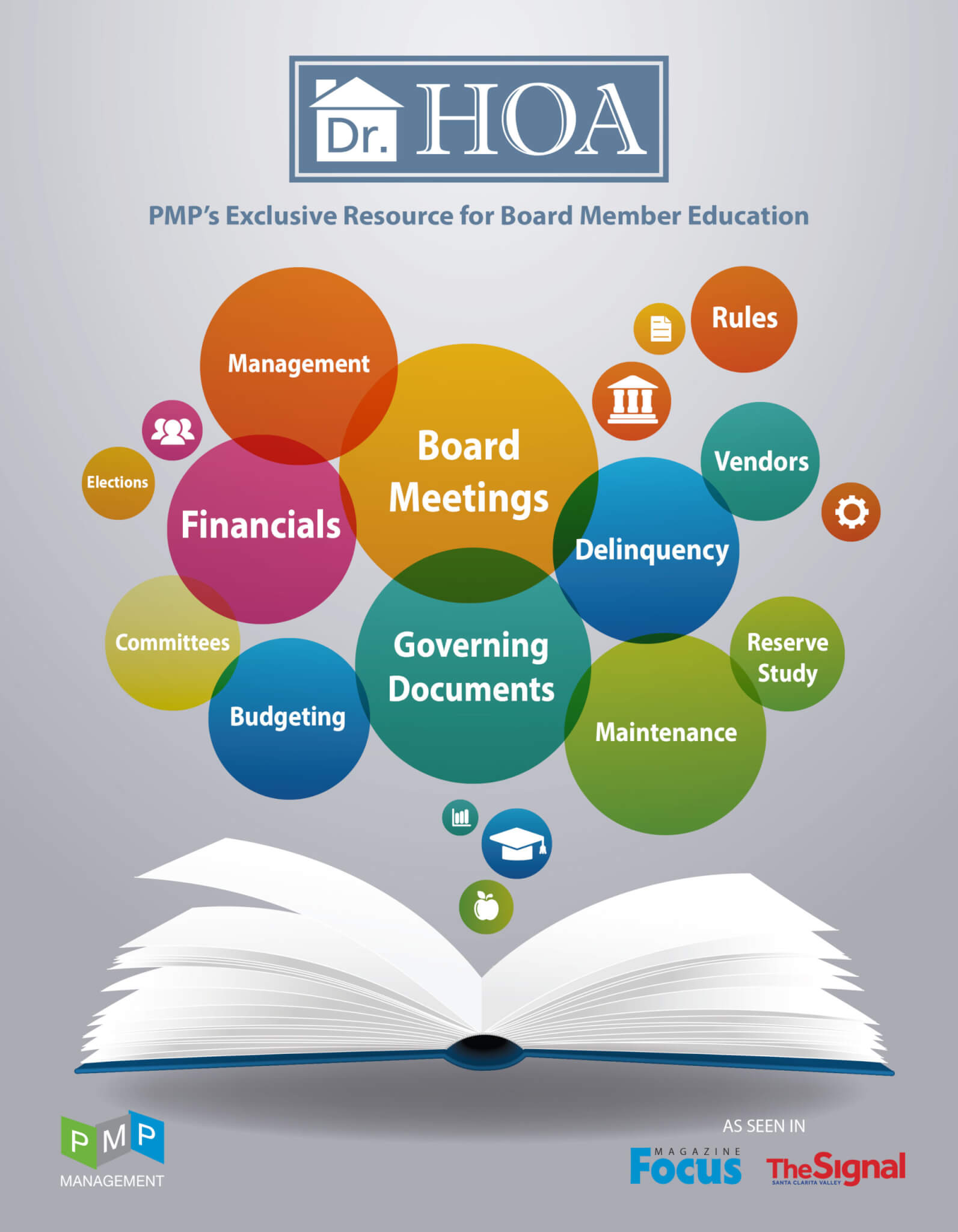Virtual Board Meetings: Fad or Future?

Are Virtual Board Meetings Here to Stay?
March 2021
Can Associations continue hosting virtual Board Meetings in a post COVID-19 world? This is a common inquiry we receive from our Board Member and resident clients. Many have grown to appreciate virtual Board Meetings, which have led to increased attendance, more productive participation, and streamlined meetings with fewer disturbances and no commute times.
While virtual Board Meetings became commonplace over the past year due to the COVID-19 pandemic, the fact is Board Members have always been permitted under California Civil Code to meet via teleconference or videoconference, with some conditions.
Civil Code 4092 defines Board Meetings as (roughly translated into layperson terms):
- A congregation, at the same time and place, of at least a quorum of the Board, to hear, discuss, or deliberate Association business that falls within the Board’s authority.
- A teleconference/videoconference where at least a quorum of the Board is connected by electronic means, whether it be conference call or video (aka Virtual Board Meeting). Virtual participation by a Board Member constitutes presence at that meeting so long as all Directors can hear one another, as well as members who wish to address the Board in General Session Meetings.
Virtual Executive Session Board Meetings
Boards may meet in virtual Executive Session Board Meetings to discuss executive session topics without including a physical address on the posted notice/agenda. This makes sense because Executive Session Meetings are closed to the membership.
Virtual General Session Board Meetings
Boards may meet virtually for General Session Board Meetings, but a physical location must be included on the posted meeting notice/agenda and at least one Board Member or Board representative must be present at the physical location so that homeowners may attend in person. We are happy to host Board Meetings at our local office and your PMP Community Manager can serve as the Board representative.
For Associations that would like to adopt the virtual meeting platform as their new status-quo, post pandemic, we recommend establishing and adopting a formal Virtual Meeting Policy, outlining the rules of engagement for both Board Members and homeowners.
A few guidelines and best practices to consider when drafting a Virtual Meeting Policy include the following:
▪ Establish an approved virtual videoconference platform, such as Zoom, which can be accessed from telephones, smart phones, computers or tablets. This will ensure everyone will have access and all participants will be able to familiarize themselves with the platform over time.
▪ If it’s good enough for the Board Members, it’s good enough for homeowner participants. If the Board adopts a virtual meeting platform for themselves, it should be opened up to allow for owners/members to attend virtually as well. Prior to the COVID-19 pandemic, we had a few Board Member clients who wanted to attend meetings virtually, but they did not want to open up virtual attendance to the homeowner participants. As you can imagine, this was not well received by the membership. If virtual attendance is permitted for some, it should be permitted for all.
▪ Establish a regular physical meeting location in advance to ensure the videoconference platform is reliable and operates seamlessly. This includes proper internet bandwidths for streaming, adequate room to accommodate those who wish to attend in-person, and a large screen for attendees to see and be seen.
▪ All attendees, other than Board Members, will be muted until the Homeowner Forum portion of the meeting, and the policy should establish a method for organizing homeowner speakers in a fair and professional manner.
▪ Establish a code of conduct for all attendees to ensure a professional environment to conduct business. Attendees should be dressed as if they were attending the meeting in person, they should be in a location without distractions (i.e. television, music, pets), and they should be on a device that allows for them to hear the meeting and be heard when called upon.
▪ Ban recording of any type, including voice and video recording.
▪ Delegate a regular videoconference moderator, who will be responsible for operating the software platform, muting/unmuting participants, and orchestrating the homeowner forum portion of the meeting. This may be your Community Manager or a Board Member.
By adopting a detailed Virtual Meeting Policy including specific rules of engagement, your Association can continue to enjoy the benefits of virtual meeting platforms in a post pandemic world.
If you have specific questions related to your Association, please do not hesitate to email Brad Watson, President of PMP Management at bwatson@pmpmanage.com
Please Note: PMP is not a law firm and nothing contained in this document should be considered legal advice. Legal questions should be directed to your respective association attorney.